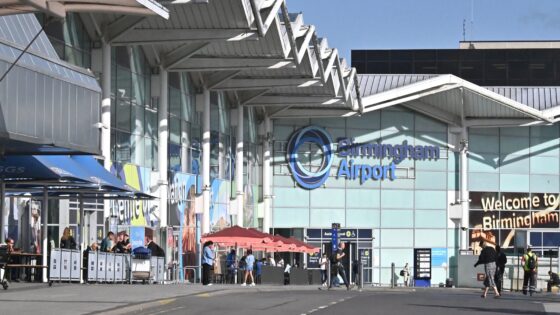Birmingham Airport has appointed Arup to draw up a new masterplan that will map the its development to 2041, as it prepares for a significant period of investment and expansion.
The masterplan will set out how Birmingham Airport intends to accommodate rising passenger numbers and new airline services while targeting improvements in sustainability, operational efficiency and passenger experience. Airport chiefs say work with stakeholders has already started and a draft will be published for public consultation in summer 2026.
The move comes as the airport returns to pre-pandemic passenger volumes and unveils a package of capital spending. Management has committed to roughly £300M of investment over the next four years, with about £75M earmarked per year until 2029. Passenger traffic is projected to reach about 17M by 2029.
Major planned works include improvements to the airfield, such as partial taxiway reconstruction, new stands, lighting replacement and runway maintenance, described as amounting to about £40M. Baggage handling will be overhauled with a further £40M committed to self-service drop-off, new sortation systems and greater handling capacity. The airport is also planning a series of retail and hospitality upgrades inside the terminal, including new food and beverage outlets and a multi-million-pound refurbishment.
Passenger-facing changes will include the first e-Gates in the south terminal, due next summer, as well as measures to speed up security lanes and upgrades to arrival and departure facilities. Work to upgrade the terminal heating and cooling systems and to electrify parts of the vehicle fleet is under way, with a rolling programme of sustainable projects costing about £50M. The airport says it is also exploring further solar opportunities after its on-site solar farm helped sustain off-grid operations during this year’s heatwave.
Arup will lead development of the masterplan. A public consultation on the draft masterplan next year is intended to give local communities and stakeholders an opportunity to influence the airport’s future footprint and operating plans.
The consultancy’s appointment and the investment announcement follow a year in which Birmingham Airport reported record investment and passenger numbers and a change in ownership structure. Macquarie Asset Management has acquired a 26.5% stake in the airport, bringing long-term airport investment experience, the airport said.
Airport executives say construction activity has been phased to limit disruption, with much work scheduled overnight; around 250 personnel are reportedly involved in capital projects on site on any given day.
Local councils and campaign groups will watch the masterplan process closely. The airport lies within an area where growth raises familiar issues – noise, surface access, carbon emissions and housing pressures – that have surfaced during previous expansions at other UK airports. The draft plan and its environmental assessments, when published, are likely to be the focus of scrutiny by both residents and planners ahead of any formal planning applications.
Birmingham Airport development and construction director Ian Taylor said: “We are delighted to have Arup on board, who are world-class at planning major infrastructure projects.
“Birmingham Airport is set to grow steadily in the coming years, and we need to ensure it is fit for the future – both in the terminal and on the runway. This is about ensuring the airport can accommodate future capacity efficiently and sustainably, and we’re excited to see the next chapter in our history.”
Arup aviation business leader for UKIMEA and Europe Alan Newbold said: “Well-planned, sustainable airport growth is a vital enabler of economic opportunity, connectivity and regional prosperity. Arup is excited to support Birmingham Airport’s ambition to deliver this through its long-term masterplan, underpinned by a clear focus on sustainability, social value and stakeholder engagement.
“We look forward to providing the technical expertise and strategic insight needed to ensure BHX’s development supports climate goals and the West Midlands’ future growth, while contributing to national prosperity.”
Like what you’ve read? To receive New Civil Engineer’s daily and weekly newsletters click here.
